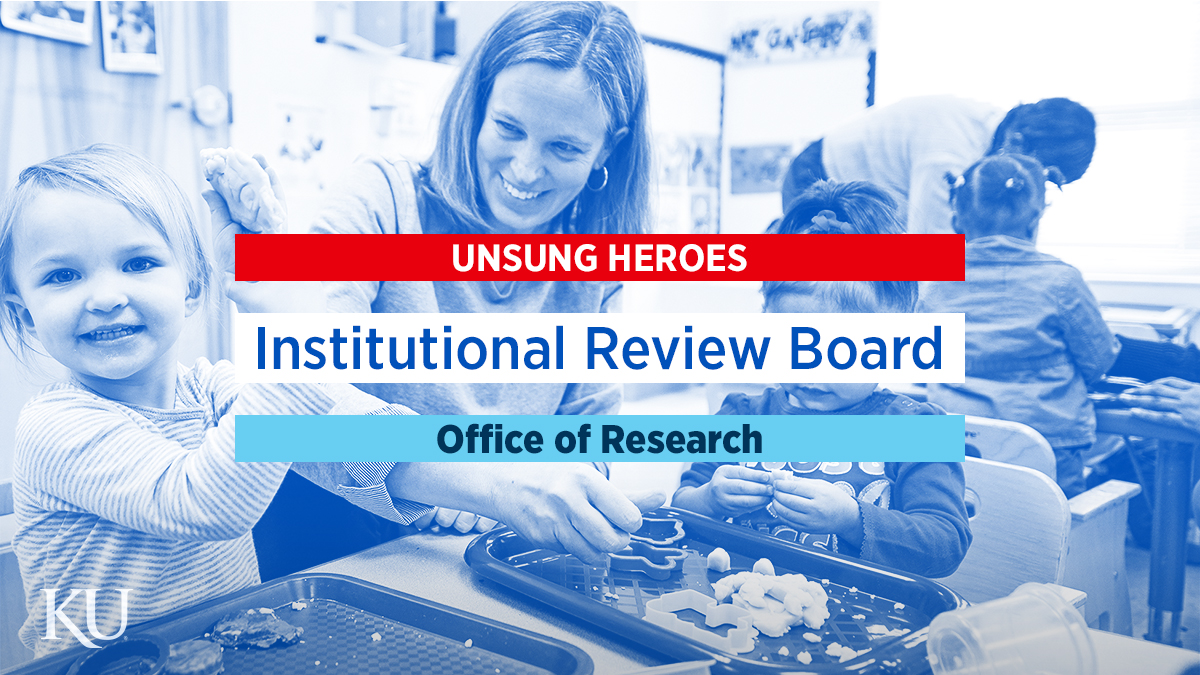IRB ensures safe continuation of research during pandemic

Institutional Review Board | Office of Research
After the COVID-19 pandemic brought in-person research to a halt in March 2020, KU’s Institutional Review Board members took on the additional responsibility of reviewing requests for reactivating in-person human subjects research, going beyond their regular time commitment.
The special panel consisted of Human Research Protection Program staff and rotating board members who devoted an extra two hours each week to reviewing studies on a case-by-case basis from June 2020 to October 2021.
“All board members volunteer their time for meetings and do not receive compensation,” said Alyssa Haase, HRPP administrator. “COVID was an especially busy time for these members as they had their own classes, research, families and health to consider.”
The 24-member IRB consists of KU faculty and students, as well as Lawrence community members. In addition to its special COVID meetings, the IRB meets once a month to review studies that present greater than minimal risk to participants or vulnerable populations.
The board consists of faculty members from departments across the university. Members volunteered monthly, some volunteering multiple times.
“I feel that my role as an IRB member gives me the opportunity to continue to serve my alma mater —and place of employment for over 23 years — even after retirement,” board member Cheryl Hand said.
Since June 2020, KU researchers have submitted more than 150 studies for reactivation. The panel determined a phased reactivation system that has evolved with the pandemic. Members evaluated risks based on the study’s participants, location and research activity. They compared plans with guidelines and policy from the Centers for Disease Control & Prevention and KU, along with the number of current COVID cases in the community.
Cheryl Holmes, research project director in the School of Social Welfare, worked with the IRB to make modifications to her study involving farmworkers, who are at a higher risk of being exposed to and contracting COVID-19.
“Overall, the work of the IRB allowed us to provide a platform for migratory and seasonal agricultural workers to share time-sensitive information about COVID-19 in their lives,” Holmes said. “They are essential workers who are critical to having food in the stores and on our table. The farmworkers shared over and again how much they appreciated the opportunity to share their views and be involved in this process.”
To reactivate studies, researchers presented the board a safety plan, which included procedures for cleaning, social distancing, screening, and monitoring to mitigate the risk of contracting COVID.
“The board members played a large part in safely reactivating in-person research and allowing research to continue in the midst of the pandemic,” Haase said.